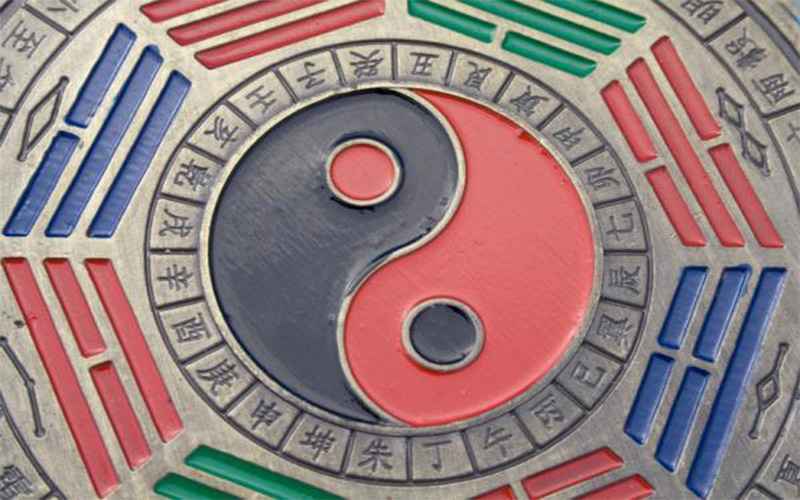FENG SHUI Definition & Meaning
When people hear the term “FENG SHUI,” many associate it with mystical symbols or superstitious beliefs. However, it is not some ethereal metaphysics, but rather a set of principles distilled by ancient sages through observing natural patterns—such as mountains, rivers, air currents, and directions—to understand the connection between spatial layout and quality of life. This article will thoroughly explore the core definition, historical development, fundamental principles, and practical benefits of Feng Shui, helping you gain a genuine understanding of China’s Feng Shui culture.
What is Feng Shui?
Feng Shui is an ancient Chinese environmental planning art developed from the belief in “qi” (the vital energy inherent in all things). Rooted in Taoist philosophy, it posits that ‘qi’ is composed of two opposing yet complementary forces—yin and yang. By balancing yin and yang and optimizing the flow of “qi,” one can enhance the physical and mental well-being, interpersonal relationships, and fortune of inhabitants.
Ancient Chinese people arranged furniture, decorations, and even urban layouts to ensure the circulation of “positive energy” and the dissipation of “negative energy,” thereby securing smooth living. This principle permeated everything from the placement of beds and desks in homes to the north-south axis layout of the Forbidden City in Beijing (with its main gate facing south, considered an auspicious direction).

The Fundamental Principles of Feng Shui
Feng shui practice revolves around four core principles, which form the foundation for understanding and applying feng shui and are closely tied to daily life:
1. Qi: The Core Energy of Feng Shui
“Qi” is the central concept throughout feng shui, referring to the life force inherent in all things (similar to ‘prana’ in Indian culture). Good feng shui requires the smooth flow of “qi” — — In spacious rooms with sparse furnishings, qi disperses easily, leaving occupants feeling lost; in cramped, cluttered spaces, stagnant qi creates a sense of oppression. For instance, doors and windows serve as qi’s entry and exit points. Keeping these pathways unobstructed is fundamental to optimizing qi flow.
2. Command Position: The “Control Point” in Space
The command position refers to the area in a room that is farthest from the door and not aligned with it (ideally diagonally opposite), where occupants spend the most time. According to feng shui principles, the bed in a bedroom, the desk in an office, and the stove in a kitchen should be placed in the command position with a clear view of the door. This fosters a sense of security and control, symbolizing mastery over vital life domains (health, career, wealth). A common mistake is placing the bed under a window, which causes excessive energy loss. This can be mitigated by adding a headboard or curtains.
3. Bagua Chart: The Energy Map of Space
The Bagua (meaning “eight areas”) is an energy analysis tool overlaid on a floor plan, with each sector corresponding to a different life domain. The center (ninth sector) represents the occupant’s overall health. Different Feng Shui schools apply slight variations: Western BTB schools align the “Knowledge, Career, Helping Others” sector with the main entrance; classical schools (like Flying Stars) adjust based on annual energies or compass directions. For example, the “Xun Sector” corresponds to wealth, while the “Kan Sector” relates to career. Enhancing the layout of these sectors (e.g., adding corresponding colors or elements) can boost fortune in the associated areas.

4. Five Elements: A Balanced Energy System
The Five Elements (Wood, Fire, Earth, Metal, Water) originate from Daoist tradition, representing fundamental energies that compose all things, each possessing distinct attributes and corresponding relationships:
- Wood: Symbolizes expansion and vitality, associated with green and blue, shaped as columns/rectangles, linked to family and wealth;
- Fire: Symbolizes passion and inspiration, associated with red, shaped as triangles/pointed forms, linked to fame;
- Earth: Symbolizes stability and nourishment, associated with brown, orange, and yellow. Its shape is flat or square, linked to health, knowledge, and partnerships;
- Metal: Symbolizes efficiency and refinement, associated with white and metallic colors, represented by circular/spherical shapes, linked to helping others and children;
- Water: Symbolizes flow and wisdom, associated with black, represented by wavy/curved shapes, linked to career.
In Feng Shui practice, balancing space energy and improving the flow of “qi” is achieved by blending and supplementing the Five Elements (e.g., placing water element decorations in the “career zone”).
What are the benefits of feng shui?
The value of feng shui lies not only in its “auspicious symbolism” but also in its tangible improvements to quality of life. Core benefits include:
1. Enhancing Living Comfort and Efficiency
A well-planned feng shui layout optimizes spatial functionality: keeping pathways clear prevents tripping, while strategically placing furniture (e.g., beds against solid walls, desks facing doors) boosts security and focus. These details reduce daily inconveniences, making routines smoother. For instance, positioning the living room sofa away from walls creates interaction space, fostering family engagement; locating bedrooms away from noise sources improves sleep quality.
2. Enhancing Physical and Mental Health and Emotional Well-being
Feng Shui emphasizes the balance of “qi.” Cluttered spaces cause stagnant “qi,” triggering anxiety and fatigue; whereas tidy, well-lit environments allow “qi” to flow smoothly, promoting a peaceful mindset. For instance, avoiding mirrors facing the bed in bedrooms (to prevent nighttime startles) and placing plants with rounded leaves (like money trees) can alleviate stress. Introducing natural light and wood elements into study areas boosts learning and work efficiency.
3. Boosting Career and Wealth Accumulation
Feng shui supports career and wealth through “energy guidance”: positioning office desks in commanding spots enhances decision-making and leadership; Keeping the home’s “wealth sector” (like the Xun sector in the Bagua) tidy and adding wood elements (green plants) strengthens a positive wealth mindset and helps seize opportunities. For instance, some businesses relocated from “intersections facing each other” to “curved streets” (known in feng shui as “jade belt encircling the waist”) to improve customer flow and business performance.
4. Fostering Harmonious Relationships
Feng shui arrangements in shared spaces influence interpersonal dynamics: Restaurant seating that facilitates face-to-face conversation and living room seating with moderate spacing (neither distant nor cramped) can bring family and guests closer. As a private sanctuary, the bedroom cultivates a relaxing atmosphere through yin energy (soft colors, light-blocking curtains), which also nurtures intimate relationships.
